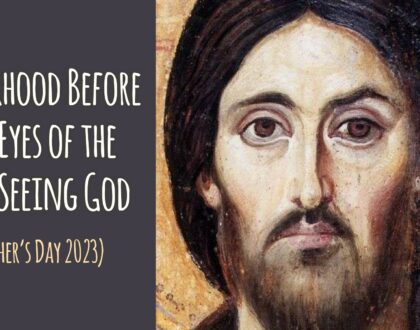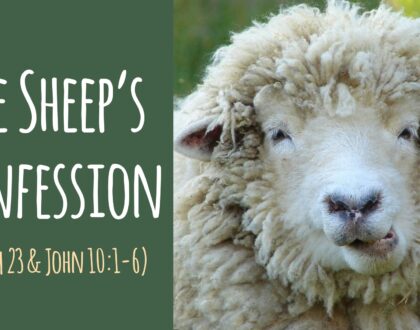Reflection Questions: Invitation to the WORD-HOUSE (John 8.31)

by Pastor Gene
John 8:31: So Jesus said to the Jews who had believed Him, “If you abide in My Word, you are truly My disciples …”
- What’s your understanding of the difference between a ‘believer’ (John 8:31a) and a ‘disciple’ (John 8:31b)?
- I’ve suggested that, in John 8:31, Jesus is inviting us to ‘move into the WORD-HOUSE.’ I’ve drawn this idea from the meaning of the Greek word behind the word “abide.” It means ‘to remain, to dwell, to live in.’ ‘Abide’ is a ‘dwelling’ word – a ‘housing’ word. It’s an invitation to live somewhere, to dwell somewhere. The English word ‘abide’ is related to the word ‘abode.’ ‘Abiding’ is what we do in an ‘abode.’ Well, in John 8:31, Jesus is inviting us to ‘live in’ His Word – to ‘move into’ His WORD-HOUSE and stay there! “If” we do (maybe we will, maybe we won’t), we will be His true disciples. What do you think ‘moving into the WORD-HOUSE’ (‘living in the Word’) looks like? What is Jesus asking of us and how can we do it?
- In John 12:26 Jesus said something worthy of our careful consideration: “If anyone serves Me, he must follow Me; and where I am, there My servant will be also; if anyone serves Me, the Father will honor him.” So, the one who is ‘honored’ by the Father is the one who ‘serves’ Jesus; and the one who ‘serves’ Jesus is the one who ‘’follows’ Jesus; and to ‘follow’ Jesus, we have to be ‘where He is.’ What do you think Jesus is getting at here? What lessons can we draw from this passage that might help us to better understand what it means to be a true disciple?
- Back in John 7:13, some were believing Jesus’ message, but “no one was speaking openly of Him for fear of the Jews.” One of the great responsibilities of a true disciple is to speak openly about what Jesus (1) has done for us and (2) wants to do for others! This is a part of our priesthood (1 Peter 2:9). We do this because “once [we] had not received mercy, but now [we] have received mercy” (1 Peter 2:10). Consider the following verses: Matthew 10:26-33; Luke 12:11, 21:10-15. What do they tell us about speaking openly?
- Consider each of the following Bible verses/passages and answer: ‘What does this verse/passage tell me about what it means to be a true disciple of Jesus?’
- On the nature of being a disciple: Acts 11:26c; John 10:27, 8:31 (moving into the WORD-HOUSE).
- On the cost of being a disciple: Matthew 10:34-39, 16:24-25, 28:13; Luke 9:57–62, 14:26-33; John 6:66, 15:20-21.
- On the responsibilities of being a disciple: Matthew 4:19, 28:19; John 13:34-35, 15:8.
- In John 9:28-29, the Pharisees reviled a healed blind man by saying, “You are His [Jesus’] disciple, but we are disciples of Moses. We know that God has spoken to Moses, but as for this man, we do not know where He comes from.” I wonder. Are there “disciples of Moses” running around today masquerading as disciples of Jesus? What do you think I mean by this? See John 1:17, Galatians 3:1-3.
Recommended Posts

Reflection Questions: Fatherhood Before the Eyes of the All-Seeing God (Father’s Day 2024)
June 16, 2024


